- Size
- Smallest
- Small
- Small to Medium
- Medium
- Large
- Giant
- Characteristics
- Smartest
- Hypoallergenic
- Fluffy
- Best Guard
- Best Family
- Best for Kids
- Low Shedding
- Healthiest
- Police Dogs
- Most Calm
- Quietest
- Color
- White
- Black
- Grey
- Brown
- Blue
- Red
- Coat
- Hairless
- Short
- Long
- Origin
- Japan
- China
- Australia
- Germany
- Italy
- United States
- France
- Group
- Hound
- Terrier
- Herding
- Toy
- Working
- Sporting
Owning Owls as Pets in Canada: Legalities and Considerations
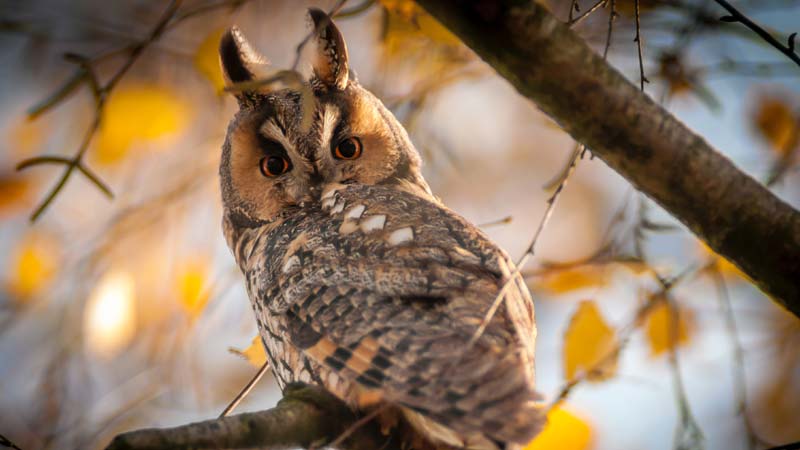
Photo by Arjan Stalpers on Unsplash
The allure of owning an owl as a pet has captured the imagination of many individuals around the world. However, the desire to have these captivating creatures as companions is often met with legal restrictions and ethical considerations. In Canada, the question of whether one can legally own an owl as a pet is surrounded by complexities that delve into wildlife regulations, conservation efforts, and animal welfare concerns.
Legal Landscape Regarding Owls as Pets in Canada
Owls, like many other wildlife species, are protected under Canadian wildlife laws. Canada boasts a rich diversity of owl species, including the Great Horned Owl, Snowy Owl, and Barred Owl, among others. These birds are safeguarded by federal and provincial regulations aimed at conserving their populations and preserving their natural habitats.
The Migratory Birds Convention Act, established in 1917, and the Species at Risk Act are two key legislations governing the protection and conservation of owls in Canada. Under these laws, it is generally illegal to capture, possess, or harm owls without appropriate permits or licenses.
The Canadian government, through Environment and Climate Change Canada, oversees the protection of migratory birds, including owls, under the Migratory Birds Convention Act. This legislation prohibits the possession of migratory birds or their eggs, feathers, nests, or any other parts without the necessary permits. Consequently, owning an owl as a pet without the required legal authorization is against the law.
Exceptions and Permits for Owls as Pets
While the general rule in Canada is that it is illegal to own owls as pets without proper authorization, there are exceptions and provisions under specific circumstances. Special permits or licenses may be granted for educational, research, or wildlife rehabilitation purposes. Organizations or individuals involved in wildlife rehabilitation or conservation efforts may obtain permits allowing them to temporarily care for injured or orphaned owls with the ultimate goal of releasing them back into the wild.
Educational institutions, such as zoos, nature centers, or registered wildlife sanctuaries, might also acquire permits to keep owls for educational purposes. These institutions play a crucial role in raising awareness about owls, their habitats, and conservation efforts while providing a controlled environment for people to learn about these birds.
However, obtaining permits for owning owls as pets for personal reasons, such as companionship or as household pets, is highly unlikely. Authorities closely regulate and scrutinize such requests to ensure they align with conservation goals and animal welfare considerations.
Ethical Considerations Surrounding Owls as Pets
Beyond legal restrictions, ethical considerations play a significant role in the discourse around owning owls as pets. Owls, by nature, are wild animals with specific dietary, environmental, and behavioral needs that can be challenging to meet in a domestic setting.
Ensuring the well-being of owls in captivity requires expertise, dedication, and resources that may exceed the capabilities of most individuals. Inadequate care or improper living conditions can lead to stress, health issues, and behavioral problems for these birds.
Furthermore, the demand for owls as pets can contribute to illegal wildlife trade and the unethical capture of wild owls, potentially endangering already vulnerable populations. This practice disrupts ecosystems and poses a threat to the conservation efforts aimed at preserving these magnificent birds.
Advocacy for Conservation and Education
Instead of advocating for the ownership of owls as pets, various organizations in Canada focus on conservation, education, and rehabilitation efforts. These entities work tirelessly to raise awareness about owls, their habitats, and the importance of preserving their natural ecosystems.
Through educational programs, wildlife sanctuaries, and outreach initiatives, these organizations provide opportunities for people to appreciate owls in their natural environments. Encouraging public engagement and fostering a deeper understanding of these birds' significance in the ecosystem are pivotal in promoting responsible behavior towards wildlife.
Conclusion: Owls Belong in the Wild
Owls, with their enigmatic charm and remarkable adaptations, continue to captivate our imagination. However, in Canada, the laws and ethical considerations surrounding their ownership emphasize the importance of preserving these creatures in their natural habitats.
While owning an owl as a pet may seem appealing, it's crucial to recognize and respect the legal constraints and ethical concerns associated with their captivity. Supporting conservation efforts, promoting education, and advocating for the protection of owls in the wild are essential steps in ensuring their survival and continued existence for generations to come. Owls, truly, belong in the wild where they can thrive and enchant us with their natural behaviors and beauty.
You May Also Like
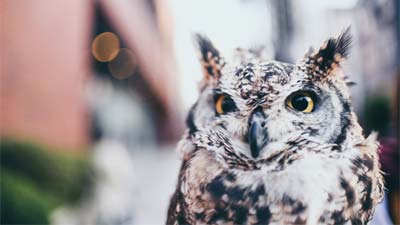 Other TopicsExploring The 7 Most Common Owl Species
Other TopicsExploring The 7 Most Common Owl Species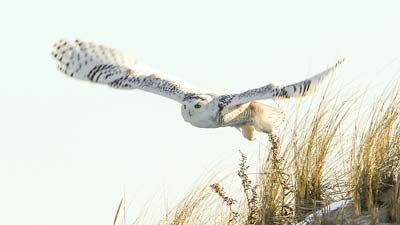 Other TopicsThe Speed and Flight Abilities of Owls: How Fast Can They Fly?
Other TopicsThe Speed and Flight Abilities of Owls: How Fast Can They Fly?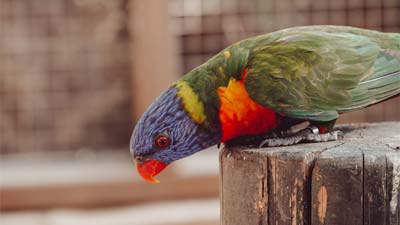 Other Pets, Pet BirdsThe Lineolated Parakeet: A New Owner's Guide (What To Know)
Other Pets, Pet BirdsThe Lineolated Parakeet: A New Owner's Guide (What To Know)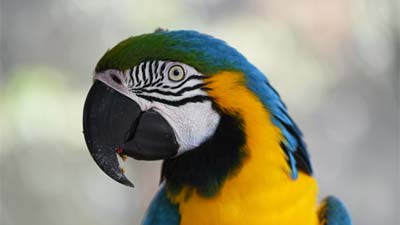 Other Pets, Pet BirdsThe Pionus Parrot: A New Owner's Guide (What To Know)
Other Pets, Pet BirdsThe Pionus Parrot: A New Owner's Guide (What To Know)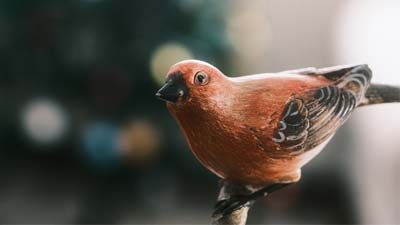 Other Pets, Pet BirdsThe Finch: A New Owner's Guide (What To Know)
Other Pets, Pet BirdsThe Finch: A New Owner's Guide (What To Know)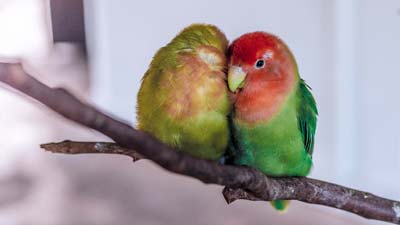 Other Pets, Pet BirdsThe Lovebird: A New Owner's Guide (What To Know)
Other Pets, Pet BirdsThe Lovebird: A New Owner's Guide (What To Know)